A long review of one of the best series of the year.
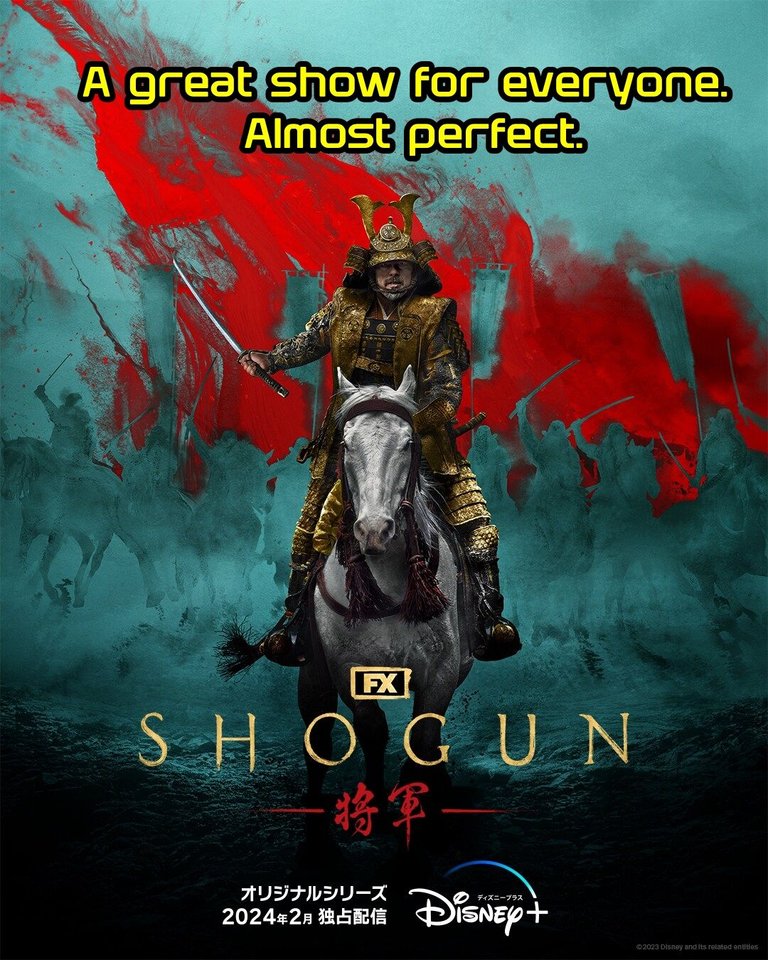
Initially, I was delighted with this series, but my enthusiasm started to fade away halfway through. Not the whole thing, because it's still a very good work, but I can't call it great anymore. There are two reasons - there were two sections inside that could have been better filled with content because they are too empty. The second reason is a completely subjective matter and I don't see it as a flaw - I just had different expectations of what I ultimately saw in Shogun. However, this is not a defect, but my private profession.
The FX series is an adaptation of the first volume of the Asian saga by James Clavell. A famous, best-selling writer whose publications have already been adapted into several adaptations. In the case of Shogun, it is the second attempt. The first series is a cult production for my parents' generation and people a few years older than me (I am born in 1989).
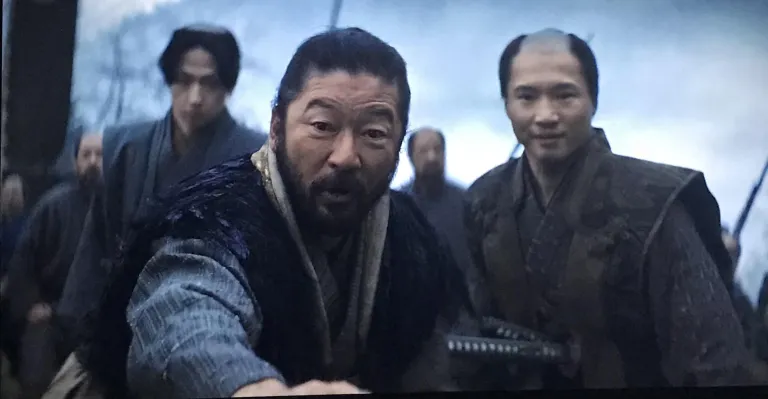
The action of the novel takes place in Japan at the turn of the 16th and 17th centuries. This is a breakthrough stage in their history. The previous ruler, Toyotomi Hideyoshi, died, leaving an heir to the throne who was only a few years old. Due to his young age, he is unable to rule Japan, so this task falls to the Regency Council. It consists of the Big Five, namely: Toranaga, Ishido, Kiyama, Ohno and Sugiyama. The main character is John Blackthorne, a sailor of English origin. Initially, he is a stereotypical representative of this nation. He is cunning, plotting how to use the Japanese and Regent Yoshi Toranaga for his own purposes. Over time, however, the fates of these two come together and the sailor helps his dream come true. He will become Shogun. However, before this happens, he will have to go through a long and winding road.
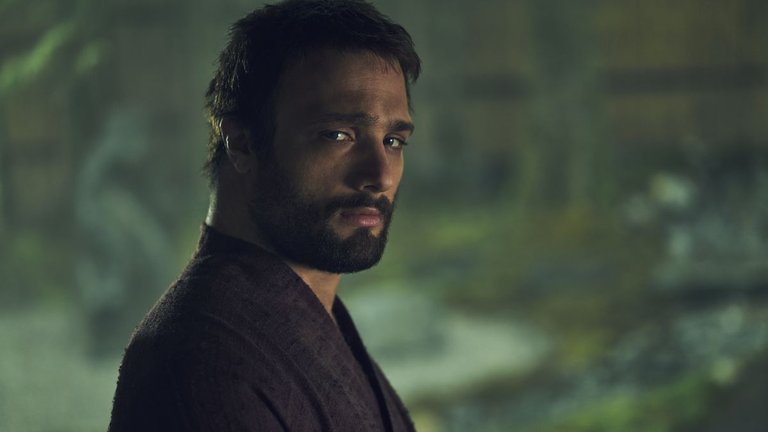
Taking this opportunity, the culture, customs, communication, society, law, rules and nuances of Japan are drastically different from what we have in Europe and the USA. Ok, there are some similarities, according to the principle One is All and All is One (or to put it in a slightly less veiled way - many of the discoveries of our ancestors are also in other places, in one form or another), but in most cases there are clearly differences. we differ. I'm not a historian. My knowledge about individual eras, Japanese statehood, the Shogunate period (as well as other eras or periods), its consequences and many other topics, is not even fragmentary. So I will try not to discuss topics that I am not familiar with. That said, I think I have above-average knowledge on this topic, and if all the experts on this topic suddenly disappeared, I could prove valuable. I know this after watching this series. I had to explain a few things to two friends (both of whom have rather better historical knowledge than me, their education and cultural familiarity are also better). I referred to various factors, and even if I was slightly untrue in a few cases (when I was explaining something on the fly), while doing research for this text and during conversations with colleagues who had more knowledge about Japan than me, I made sure of the state of my knowledge. A little more, because practically every episode, I had to explain various things to my girlfriend. These weren't any big, important threads. More trivial things like explaining the role of the Kaishaku-nin (not just an ordinary second. It's more of a symbolic role, a kind of honor. In a sense, something like a priest who performs the last rites. If a warrior asks someone to beheaded after disemboweling him, he is doing so itself an honor for this person. By the way, Seppuku is also a kind of honor, it is an opportunity to maintain Honor and reduce the punishment for one's descendants.), or cultural/social differences and what are the reasons for them.
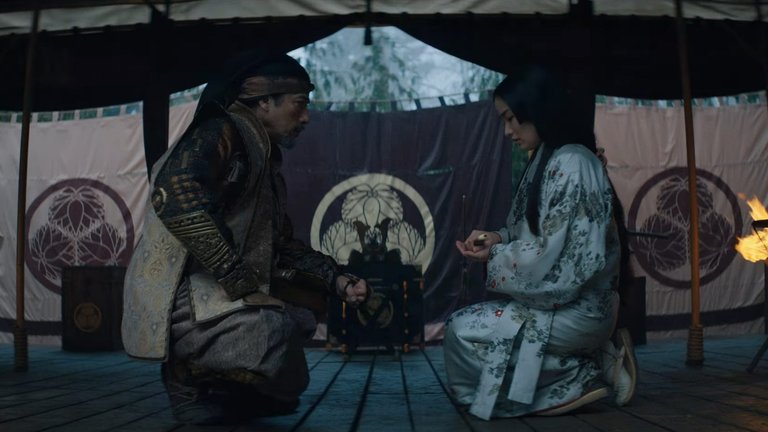
Ok, now that I've covered the introduction to these issues, I'll move on to the paragraph about the differences. Let me start by saying that although we do not criticize their culture, mentality, approach to rights and obligations (which I do, for example), it is worth knowing that we should not judge their culture. Or to put it another way, although it should not be mentioned during academic discussions, debates or scientific lectures, I don't think I'm making a mistake by criticizing some of their features. At least that's what I think after listening to Szymon from Wojna Idei (for readers from outside Poland - a YT channel about social, religious and political issues), with whom I agree that there may be cultures that treat people better or worse. Sure, there are better and worse cultures, but the process of shaping culture cannot be assessed. How it develops depends on their capabilities, opportunities and threats. Where they live, what surrounds them (mountains, sea, islands, life in the interior of the continent without access to the sea, good / bad soil quality). Whether it is poor or not (countries that do not have access to the sea often do not have access to such riches as the countries of sailors - pay attention to which countries were usually world hegemons or how they rose to their power.) How many people do they have who are strong, intelligent, healthy, durable. Is the Earth rich in agricultural produce (strong warriors, many citizens), metal ores (solid tools, weapons that will not break after a few hits, materials/raw materials for trade), etc.
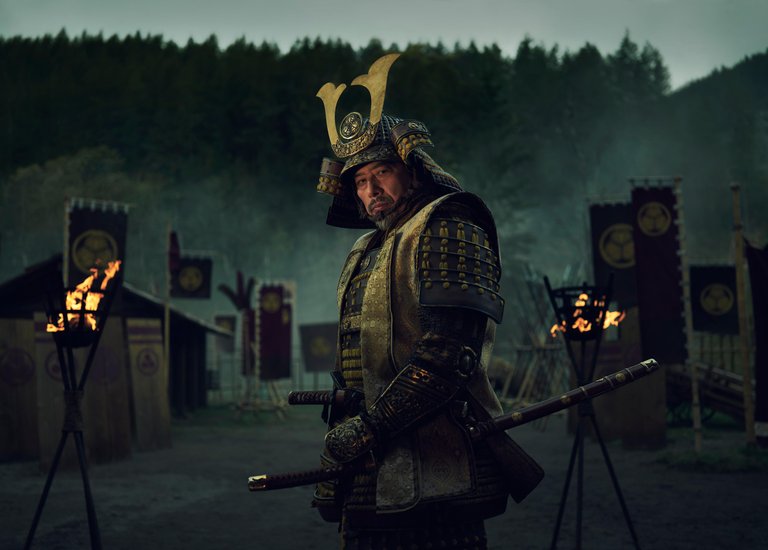
I'll start with communication and sharing information. As I said when discussing the first episode, we differ even on this issue. I referred to a book that I had heard and mentioned several times on various occasions. It points out the differences between American comics and Japanese manga (Japanese comics. The most famous examples for the older generation and my generation are Dragon Ball and Sailor Moon.). I will limit myself to differences in terms of communication, providing information, and talking about my feelings. Details can be found at the end of the review in the form of a link. Communication takes place in a subtle and indirect way, i.e. as it is often done in diplomacy (I say this because it can be more direct, but for various reasons radical moves are less often used) - we do not speak directly. I will say this with a simple but understandable example. A person X in the USA or Eastern Europe, for example, would say "Yo, your father is a thief. He robs others because he is too lazy and stupid to start working." A Japanese person would do it like this: "Y, your dad is living beyond his means and the money is flowing from his purse to a more responsible person." They do not communicate directly, they speak discreetly. It may seem that this way is nicer. The truth is that by speaking in such a veiled way, you can offend someone even more severely or make it even more clear not to do certain things because the consequences will be terrible. Women of all nations mastered this art better than men, because they had to. Ironically, it is said in such a way as not to offend someone or to avoid embarrassment. Appropriate attitude and adherence to conventions are also extremely important, which is also visible in other cultures. For example, if there is someone from another continent or a country with a different culture. We simply don't attach that much importance to it and basic respect is enough for us. For them, respect and honor are very important.
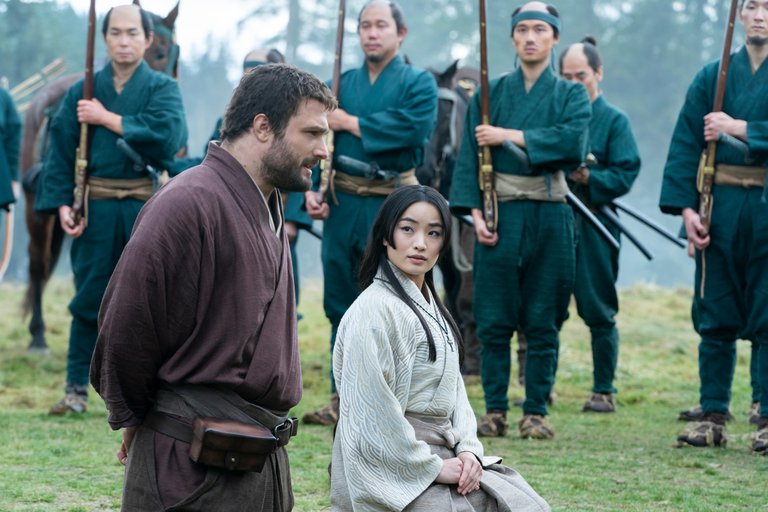
Our ways of resolving disputes are different, as are our attitudes towards honor and embarrassment. No one is having fun there and more often there is a violent or bloody, suicidal solution. I don't know if my comparison is good, but it seems to me that their world is more similar to the natural world. The world of animals and nature, where there is no classic division into good and evil, we only have a desired and undesirable effect. If I'm oversimplifying, I apologize. There is a link with more detailed information at the end of the review. Referring to the things I know, honor has a completely different meaning there than with us. They are more radical than our medieval knights (I am not saying that in Europe it was the "gold standard", but a code to which they should adhere, which they did with varying degrees of success). If the Japanese became disgraced, often several generations after them lived waist-deep in shit and were spit on by everyone. I don't have to mention confiscation of property or giving away daughters or sons. And losing one's honor in Japan is an easy task, even if we know the rules of their society. It is enough that we somehow embarrass our Daimyō (feudal lord) or draw our sword in the presence of someone who is higher than us in the hierarchy. Imagine clearing your throat too loudly, farting or moving at the wrong time. Sassy/straight talkers like me were the first to die.
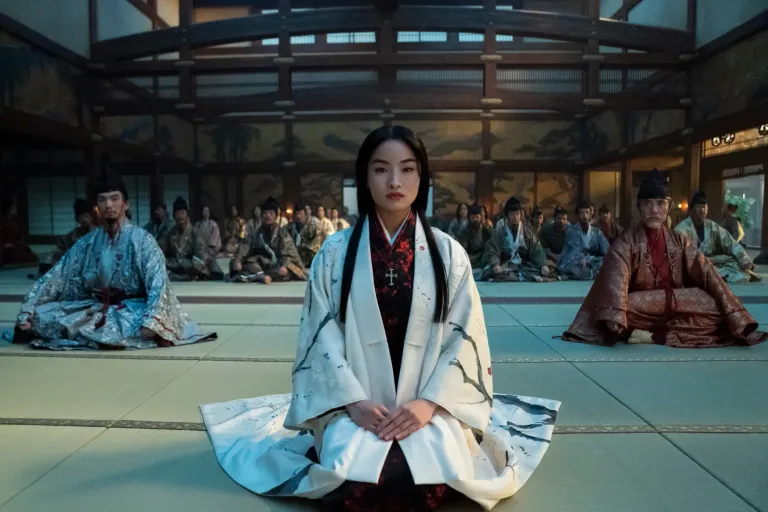
However, you can make the consequences of your actions less severe for the rest. It's about committing seppuku. Let me say right away that there is no difference between Harakiri and Seppuku, but there is a difference in the case of gender. Women cut their throats, men cut their stomachs open. Both genders can request to receive Kaishaku-nin. If our transgression was not a terrible crime, or it was, but our Lord was gracious, we can commit suicide with an ordinary sword. However, if the Daimyō is a sadist or we have done something really bad, we have to do it with a bamboo sword. As you can imagine, this is brutal and difficult to implement. Suicide is an honorable solution. As I mentioned, Kaishaku-nin is an honorable role. By asking someone for this, we ennoble them and also put our fate in their hands. Why? Because according to superstition, the cut must be perfect and the severed head should fall in front of the condemned person. If the cut is not a clean hit (and the head hangs on a piece of skin and muscle shreds, which happened) or falls behind our body, it means that the soul did not go to heaven and the disgrace of the samurai has not been withdrawn. Ordinary peasants or samurai deprived of honor or Lord were torn apart by horses. As for other forms of punishment, their spines were broken with a cross or they were boiled alive in a huge and deep cauldron - if the unlucky ones managed to survive the first seconds and reached the metal, their hands and fingers were broken with sticks (we see the latter in the series). These methods originally belonged to the Chinese and Mongols, but as I mentioned several times in the texts about Kingdom (a Japanese comic book that tells about a key stage in the formation of the most important countries in Asia, the Warring States Period), the Japanese took over a lot from the Chinese.
Is this spicy for you? Cool, I have something stronger. Children cannot go against their parents' will. Even in our lifetime, it happened that a daughter/son who did not agree with the parents' decision (e.g. regarding taking over their job or field of study) committed ritual Seppuku by leaving a farewell letter in which they explained their decision. Similarly, a soldier cannot oppose his commander and if he has already used all the verbal arguments, he can only open his stomach to clearly emphasize the importance of his opinion. We literally saw a scene like this on the show. Back to the children. It was a common phenomenon that daughters were sent to the front as nurses or cooks, and sons were sent as Kamikaze or Imperial soldiers. In each of these cases, the parents did so with complete reverence. The will of the parent or their Daimyō was sacred. When I often tell people about the differences in the approach of Europeans to their rulers and the similar situation in the case of Japan, they usually do not believe me and think that I am exaggerating. However, I know from several sources (also asking people who speak Japanese fluently or almost fluently) that it looks exactly like in the previously mentioned Kingdom anime. The Emperor/Shogun is the equivalent of God in human skin. This is so deeply ingrained in them that they say with a smile that they will throw themselves off a cliff if the Supreme Leader so desires. Anyway, what am I going to say? Just watch the clip from the episode of King El Sei motivating the villagers for battle. I don't know if this battle looked like this or if it even took place, but this war is a historical fact. Speaking of faithful service to one's master - this is clearly visible in the scenes with the assassins. Like the remnants of the Japanese in WWII, when they were caught and could no longer escape, they tried to do as much damage as possible before the body closed its eyes for the last time.
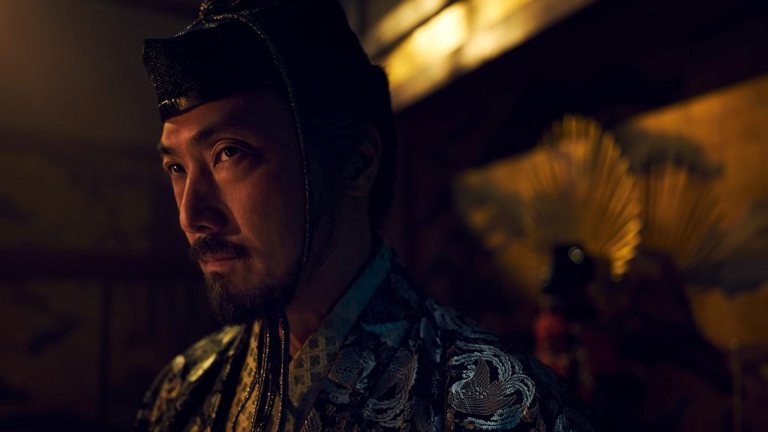
Sorry for devoting so much time to Japanese culture. I could write more, but I wanted to show you in the shortest possible way how different we are. By the way, as a last interesting fact, the Japanese still distinguish carnal love from true love (in other words, they perceive betrayal differently and there is no such drama when a wife meets the muscular Chad in the evening or a husband takes a young student on a hot date).
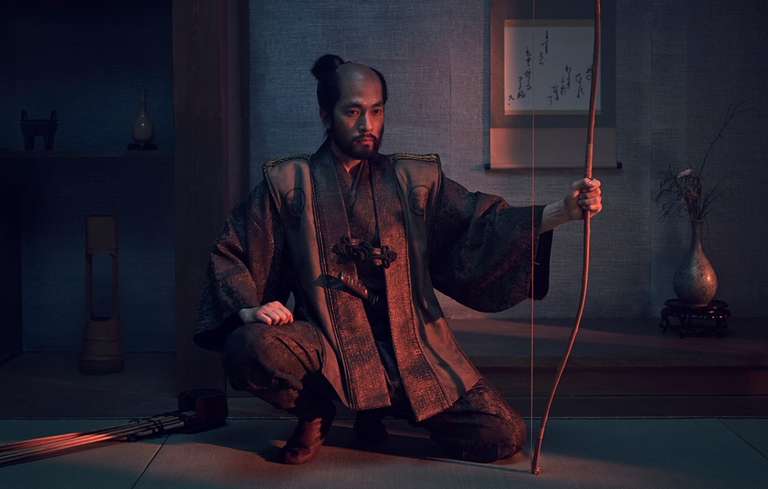
When it comes to characters and actors, every character important to the plot made a great impression on me. Even if I didn't like someone, such as Toda "Buntaro" Hirokatsu, it is due to the issue of like/dislike. These are purely subjective issues that I try not to pay attention to. Well, why should I criticize him? For a consistent character? Because it was written consistently? Because the actor rose to the challenge and convincingly showed his emotions and the tragedy of this character? For feeling the emotions I should feel, because that was the writer's and director's intention? Because he fulfilled the task assigned to him and played a nasty dick that we, as viewers, are supposed to dislike? I didn't like him because of his nasty personality, but at the same time I felt sorry for him. In fact, I can say the same about every hero and heroine. Starting with the protagonist's gardener and ending with Lord Toranaga.
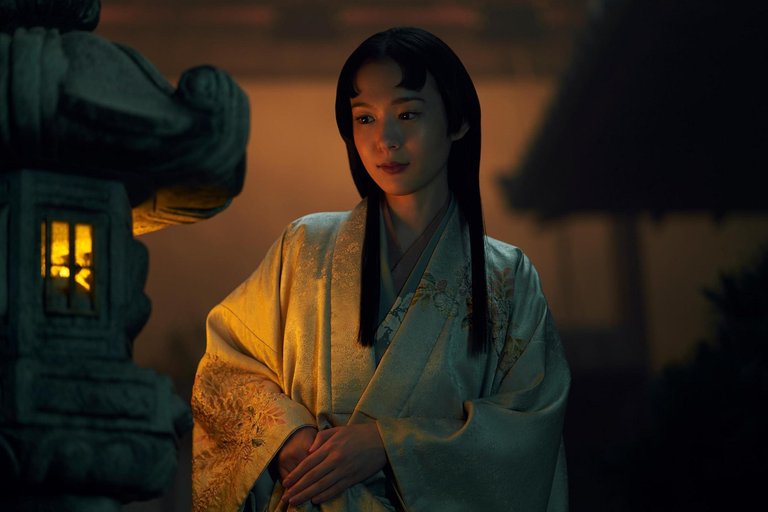
However, before I get to it, I will share with you my opinion about the selected heroes. I will skip the protagonist because I have already told you the most important thing and I don't want to spoil anything. The first character I liked was Toda Mariko. Not only because of its beauty, but above all the majesty it exudes. The last time I felt this aura was from Lily Gladstone in Killers of the Flower Moon. This is the aura of a Lady aware of her value. She exudes femininity, intelligence and highly developed personal culture. It is like a beautiful tiger in natural conditions. It's wonderful to watch, but you have to be careful. Mariko doesn't have the strength, claws and teeth of this animal, but that doesn't mean she can't hurt you with words. The heroine has mastered the feminine attribute of screening men through and through to perfection. He reads emotions and uses words perfectly. Like Toranaga, she knows how and what to say so that the recipient of her statement fully understands the meaning of her message. It doesn't matter if it's an insult, a threat or a compliment. In each of these cases it hits straight to the point.
I don't have much to say about Kashiki Yabushige (spoiler-free version) except that he was a cool comic relief. It was nice to relieve sometimes too much tension in a funny way. And his actor had to make an effort to show various emotions and behaviors. Well, let's not make it too short, I liked him because he retained his honor and balls until the very end. Forgive the worthlessness of this paragraph. I wanted to emphasize the fact that I distinguished him from others.
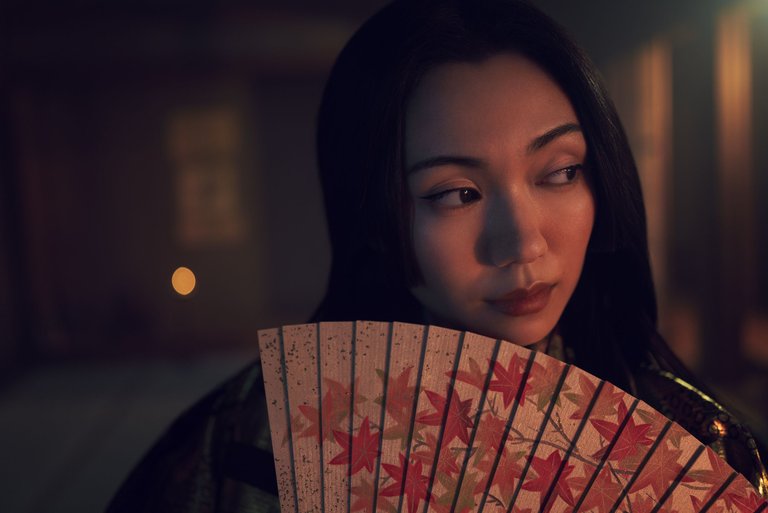
As soon as I saw Ochiba no Kata, without knowing who she was yet (I don't know the original series), I immediately felt a similar aura as in the case of the king's mother from Kingdom. I immediately said to my girlfriend - "Watch how this woman will line them up like a bunch of hooligans. They will be as polite as little children." After that, there were a few differences, but the core remained the same. Both are wise, cunning, cunning, influential and aware of their beauty. Which they take advantage of carefully - El Sei's mother mainly uses the magic of a woman's crotch, while Lady Ochiba tempts her with the prospect of lending it. You will say that it is boorish, sexist and undignified. Nonsense. In politics, things don't happen like we see on TV screens every day. Women are perfectly aware of their attributes and the fact that the vast majority of men think with "the other head" and go crazy at the thought of copulation (and if anyone denies it, Russian and Japanese intelligence and counterintelligence have proven this many times, just like the Americans , who took over their idea of using exclusive prostitutes). They also know that charisma combined with captivating beauty also produces the same effects. They also know that you cannot touch them (in the sense of hitting them, forcing them to do something by physical force). Especially when it comes to the official concubine who was accepted by the Ruler and his wife. Thanks to this, they can afford a little more in palace political games.
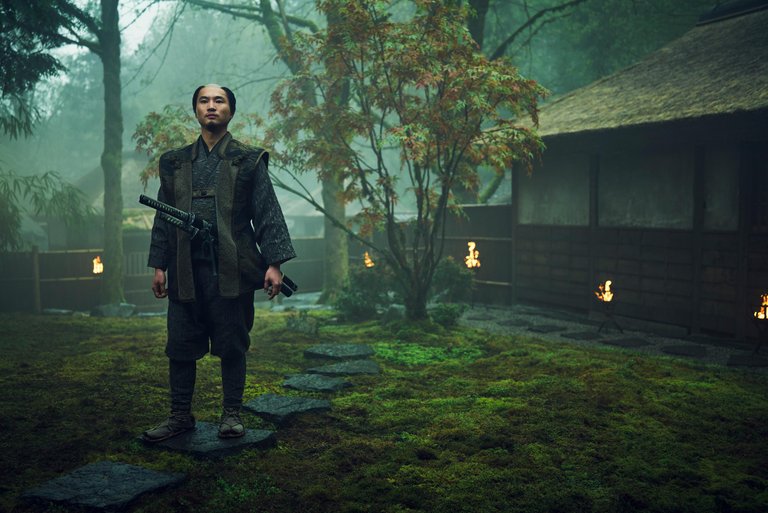
Kashigi Omi - I wasn't a fan of his at first, but I liked how his character was gradually built up. From the very beginning it was clear that he was an intelligent man who played his own game and was not just a passive observer of history. He slowly developed his influence and tried to prove himself to Lord Toranaga. It's a pity that I rarely see this type of characters in TV series (in movies, such a plot is usually a waste of time, unless it is important to the story). I always liked watching people like that who worked in the background and only at some point we learned about their plans.
Before I say anything about Toranaga, let me say... Hiroyuki Sanada is a truly awesome actor. He was so perfect in this role that when I saw him without makeup and in normal clothes, I couldn't recognize him. I have no complaints about it, just 10/10. It's almost textbook use of an actor who is supposed to be the workhorse of this series and focus the attention of viewers who do not follow information about pop culture like I do, i.e. every day. Just like Henry Cavill in the infamous Witcher, Steve Buscemi in Boardwalk Empire, or Kevin Spacey in House of Cards. Every important or relevant dialogue was presented perfectly. This facial expression, a Japanese stone face that does not betray any emotions in the most important moments. This wonderfully shown Japanese racism (which they still demonstrate to this day, which most manga and anime fans don't know about. If anti-racists saw how they treated Whites or Blacks more than once, they would have to apologize to some Europeans and Americans for baseless accusations) and contempt for non-Japanese people. When I saw him in action, I thought several times about Tywin Lannister's advice for Joffrey's successor in Game of Thrones. Toranaga is cruel, but he is also wise, cunning, merciful (when he must be), and cynical. He can also play the so-called "4D Chess" - that is, looking far ahead, making seemingly insignificant moves.

Music is one of my favorite fields of art and the Japanese think similarly (that's why they love the band Behemoth or Fryderyk Chopin so much). Theater, music and other forms of art have been familiar to them for a very long time. In this series we see fragments and various "stages" of creating Haiku (the most popular form of Japanese poetry), numerous Noh masks (an element of theater choreography, as in our European theaters), a theater play with an extensive role of the narrator, actors, with musical background. If I'm not mistaken, I also saw fragments of Kabuki theater (I say theater because the combination of the art of singing and dancing does not fit the structure of the text) and Noh Mai and Nihon Buyō dances. I even heard a few times that the Japanese discovered them faster than the White Man's civilization. Apparently they are also more attached to it than Europeans or Americans. Even though I prefer anime soundtracks (Ghost of Tsushima, Naruto, Gasaraki - I don't recommend the second anime, at least not the whole thing, but the soundtrack is wonderful), I have no reason to complain. Shogun's soundtrack reminds me of Japan from that period, it highlights the atmosphere of various scenes and creates a great atmosphere. Unfortunately, I won't share my favorite songs because I don't remember them anymore (explanation below), but the intro is extremely atmospheric! Visually, I like it less, but I usually listened to it with pleasure. It introduces the atmosphere of this series nicely. While revising, I learned the names of my favorite songs - This is War and Shinobi. Along with several other songs, it clearly reminds me of Japan. The composer did a very good job.
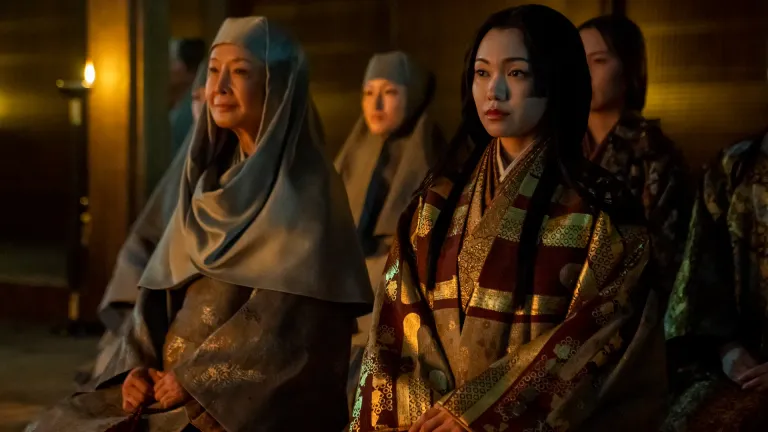
I have been delaying the publication of this text for a long time (if you have read the whole thing, write Cyberpunk2077 in the comment - I will be happy with this word ;) ). I wrote it for 2 weeks in 3, maybe 4 sittings (not counting corrections). This is for two reasons. Firstly, I wanted to refine this review, because some time has passed since the last text in which I was involved with all my heart. And the brain is like a muscle, sometimes it's worth giving it a workout and doing something more demanding. After 2, I wanted to make sure of my rating. I praised this series a lot at the beginning and thought it would all be perfect. Unfortunately, I don't think I can say that. The series is certainly very good, I don't think anyone will argue on this point. However, my wife, Asia, and I complained a bit about the middle of the series. It is unfortunately quite normal that the best comes at the beginning and at the end. Many creators are unable to place equally attractive events in the middle of the series or make us watch it with the same interest as the opening and closing episodes. I was hoping that, like in the case of Boardwalk Empire (seasons 1 and 2) or Rome season 1, the whole thing would be perfect. I'm disappointed, but I'm not angry or even pissed off. It just could have been better. Shogun is still one of the best proposals of this year and when summarizing the best series of 2024, it will definitely appear on every list. As long as a given reviewer has seen it. After some time, when my emotions have calmed down, I will come back to him to make sure of my allegations. There aren't many of them and I can generally sum them up in one sentence - it could have been better. That's all and that's it. At the moment I rate it 9/10. If the rating drops, it will be by a maximum of one point.
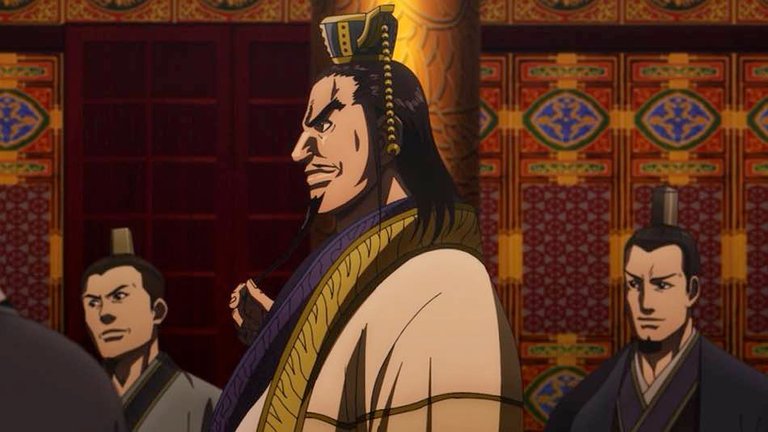
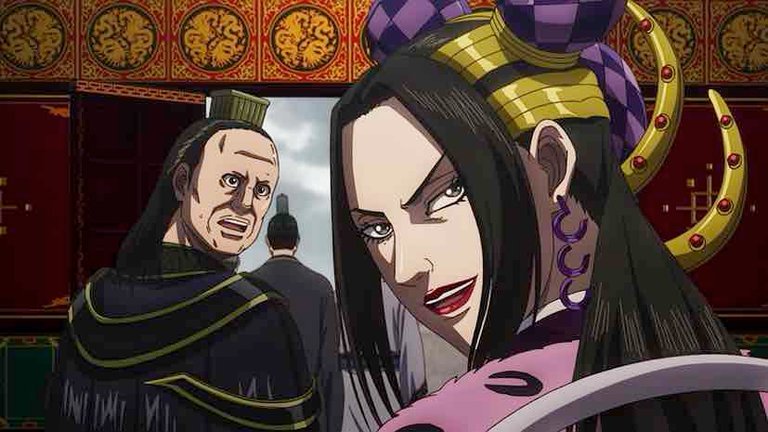
And if you are looking for a title that will fill the gap in your soul after the end of this series, I wholeheartedly recommend Kingdom. If you skip the elements from Dragon Ball and survive the first, weaker arc (equivalent to 4-5 episodes of Shogun, counting 3 anime episodes for 1 series), there is still gold waiting for you. Toranaga as El Sei or Chancellor Lu Buwei, Oshiba no Kata on steroids after fusion with Cersei Lannister and many other great characters and battles. It's true that things from DBZ may bother you, but GoT and Kingdom have so many common elements that it probably won't bother you. Especially since you have already become familiar with the Japanese language. Yasuhisa Hara is a fucking genius who can write a great, engaging story and combine it with equally cool characters and historical references.


